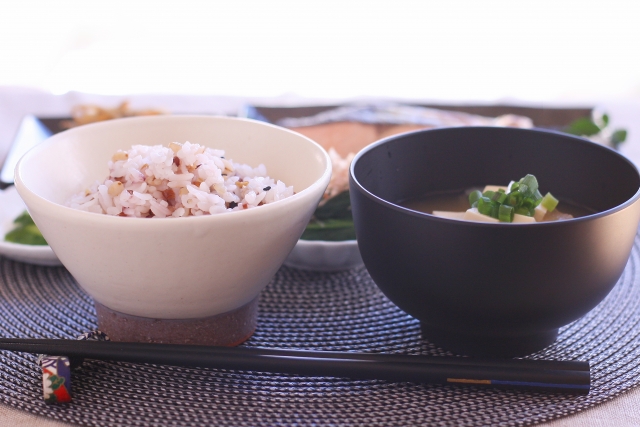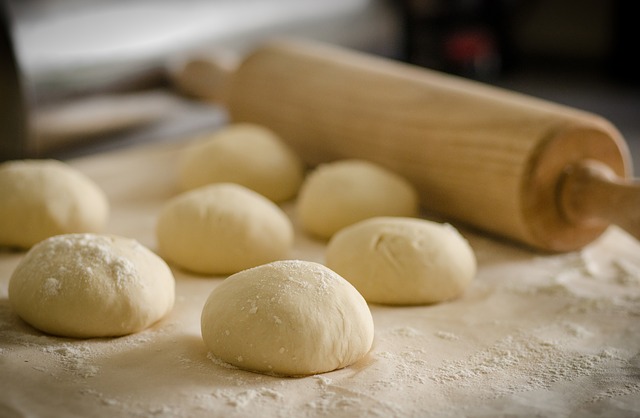I am glad to know that some people consider Japanese food as a healthy diet. However, I cannot always agree with that.
I could say that the TRADITIONAL Japanese diet is relatively healthier than other diets, but the modern Japanese diet has been changed a lot. You might be surprised by the food provided in casual restaurants like “Izakaya” in Japan if you believe that it must be healthy.
Why is that? How did it change?
Here are 3 reasons why I don’t really think the Japanese diet is healthy.
Too much salt
If you have been to popular Japanese restaurants such as “Izakaya” in Japan, you might have found the food was too salty. To be honest with you, I find it is way too salty sometimes when I go back to Japan. Can you imagine what could happen if you have that type of meal every night?
WHO recommends that an adult take 5 g salt or less per day to reduce blood pressure and risk of cardiovascular disease, stroke and coronary heart attack.

The research in 2012 said the average Japanese men consume about 11.3 g of salt per day, and women take 9.6 g of salt. Japanese authority suggests consuming less than 8 g of salt per day for men, and 7 g for women.
Why do they put that much salt on their food? Because people wouldn’t say “it’s delicious”, otherwise. At the same time, salty food makes their guest feel thirsty and want to drink more, which brings shop owners more profit.
Too much MSG
Is MSG safe or not? Although it still is a controversial issue, if you are trying to avoid it, it won’t be easy in Japan.
‘MSG’ means Monosodium glutamate, also called the sodium salt of glutamic acid, which was discovered by University of Tokyo chemistry professor Kikunae Ikeda in 1908. They started commercial production of MSG in 1909, called “Aji-no-moto”, it has been spread to Asian countries since then.
I am not going to say MSG is not safe, but most people may agree that it is better not to take too much of it.
I have to say that Japanese people love MSG, which is shown as “うま味調味料” or “アミノ酸等” in Japanese. When you go to Japan, you will realize MSG is everywhere.
In the supermarkets, especially at processed food, sauces or snacks sections, you will see a wide variety of food products containing MSG. Pick up a couple of products, turn them over to see the levels, you can easily find those Japanese words meaning MSG on their packages.
What makes me feel funny is that people don’t talk about it in Japan. I even wonder if people know what exactly “アミノ酸等” means. In Japan, there are a few taboos which they never talk about. Can MSG be one of them? …(By the way, I don’t think there is real journalism in Japan, that is another topic, though.)
Anyway, how the accumulation of MSG affects your body and health, we have to wait for further study.
Too much Deep Fried Food
Another question: do you think deep-fried food is healthy?
Personally, I think it depends on how much and how often you have them. However I know some Western people try not to take too much fat, so I pick up this topic here.
In modern Japanese diet, we eat a lot of deep-fried food. The worldwide popular “Tempura” is one of them, also we have tasty “Tonkatsu” (deep-fried pork with bread crumbs), “Karaage” (deep-fried chicken with ginger and garlic flavour), and so on.
They are all my favourite Japanese food, but some of my friends were surprised when they knew I often cook deep-fried food because they assume that Japanese diet is healthy and that deep-fried food is not very healthy.
Why could it be considered healthy?
If you imagine that you can eat healthy food every day on your trip to Japan, you might be disappointed.
As I said, the modern Japanese diet has been changed a lot. Some people say Japanese food is healthy, but it is only reliable when they are talking about the traditional Japanese diet.
If you focus on the fish-and-vegetable diet with fermented ingredients, Japanese diet sounds like healthier, but the actual diet which Japanese are having nowadays could not as healthy as you imagine. Yes, fermented food is a key to healthy Japanese food. However, the fermented products such as Miso (soybean paste) on the shelves in supermarkets may contain MSG as well.



Comments